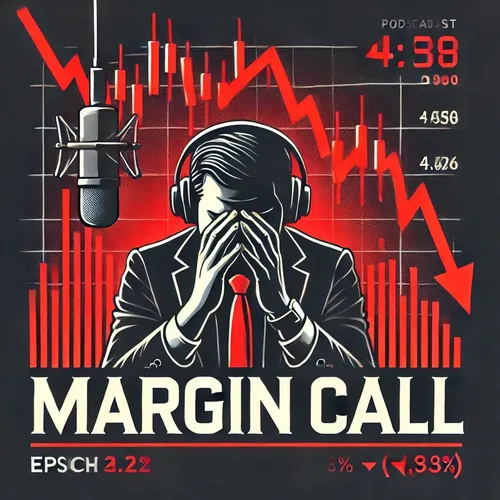Margin Calls and Short Positions: Interconnected Risks Reshaping Market Dynamics
- Author
- Quiet. Please
- Published
- Sat 06 Sep 2025
- Episode Link
- https://www.spreaker.com/episode/margin-calls-and-short-positions-interconnected-risks-reshaping-market-dynamics--67656229
Margin calls and short positions are closely linked concepts in trading that can significantly impact market dynamics, especially when short positions get into trouble. To understand how this unfolds, it’s important to first grasp what margin and short positions are all about. In financial markets, a margin account lets traders borrow money from their brokerage using their existing funds or securities as collateral. This approach allows for larger trades than would otherwise be possible with just the trader’s own capital, but it also means that losses can be amplified when the market moves against the position.
A short position occurs when a trader borrows shares or other financial assets and sells them with the intention of buying them back later at a lower price. The hope is to profit from a drop in value, but because the trader must eventually repurchase and return the borrowed assets, there’s theoretically no limit to potential losses if the price rises instead. To safeguard against these growing risks, brokerages require traders to maintain a minimum amount of equity in their margin accounts.
If the value of the account falls too low because a shorted asset’s price rises or due to other losses, the brokerage issues a margin call. This is a demand for the trader to deposit more funds or securities into the account to restore the required level of equity. If the trader doesn’t make up the difference right away, the brokerage has the right to liquidate securities in the account, sometimes with little or no advance notice.
When a large number of traders have short positions in the same asset and its price starts climbing rapidly, these margin calls can trigger what’s known as a short squeeze. During a short squeeze, struggling short sellers are forced to buy back shares to limit their losses and cover their margin requirements, which pushes the price even higher and prompts additional margin calls for others. This feedback loop can lead to dramatic price surges, often far beyond what the underlying fundamentals justify.
Recent years have seen memorable episodes where short sellers got into trouble en masse. In highly publicized events, such as those involving certain retail-favored stocks, coordinated buying by individual traders targeting heavily shorted names produced massive short squeezes. As the price of these stocks soared, margin calls were triggered across the board, forcing short positions to unwind and leading to weeks of volatile trading. Industry observers from outlets like Morgan Stanley and Gibson Dunn have noted how these dynamics are reshaping risk management and regulatory discussions, as extreme volatility and rapid losses for short sellers can expose broader vulnerabilities in market infrastructure and brokerage operations.
The regulatory landscape has also evolved, with agencies like the Securities and Exchange Commission and the Commodity Futures Trading Commission emphasizing coordination on issues around clearing, margin, and risk controls. They recognize that harmonized rules could help avoid cascading failures when multiple firms face margin calls at once, especially in periods of heightened volatility. Discussions have also focused on adjusting margin requirements and portfolio margining rules to better recognize offsetting positions, aiming to strike a balance between risk control and capital efficiency.
Ultimately, margin calls and short positions in trouble serve as powerful reminders of the risks inherent in leverage and betting against the market. They show how tightly interconnected traders, brokerages, and regulators are within the financial system. As more retail investors participate in markets using margin and short-selling strategies, understanding how margin calls work and the dangers of overcrowded short trades becomes even more essential for financial stability and informed participation.
Thank you for...
